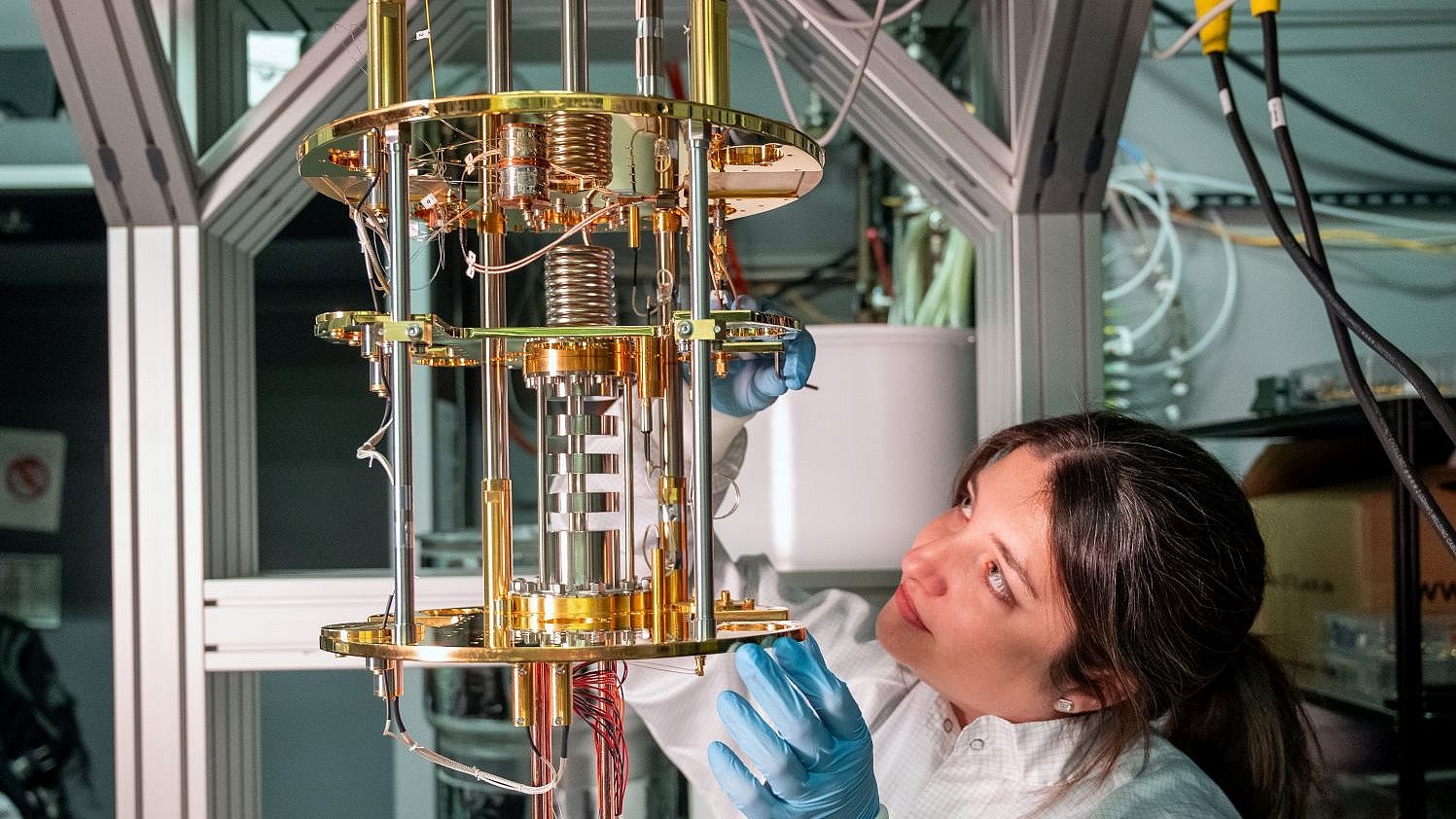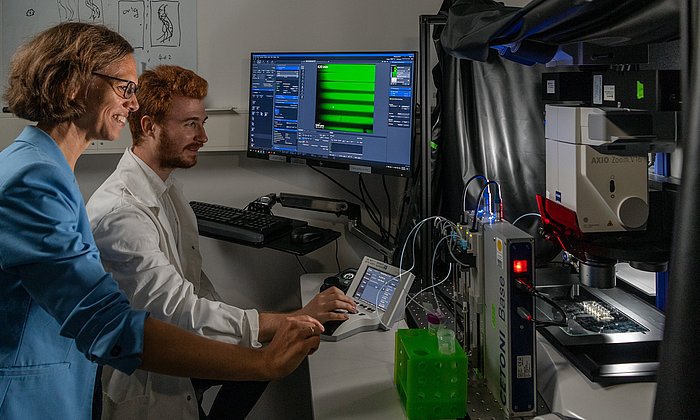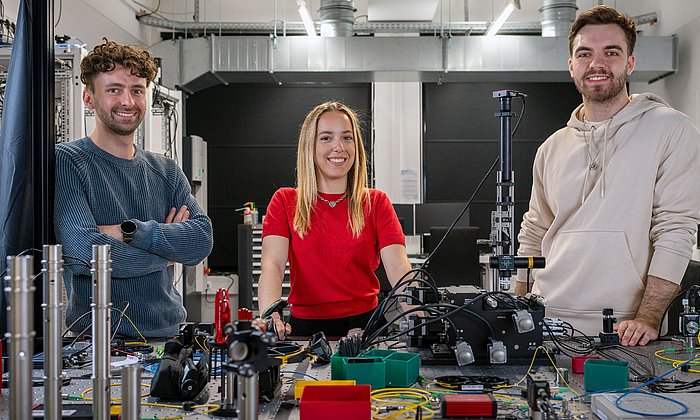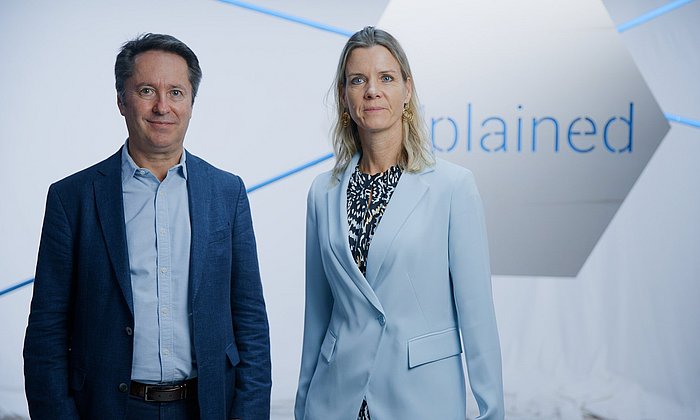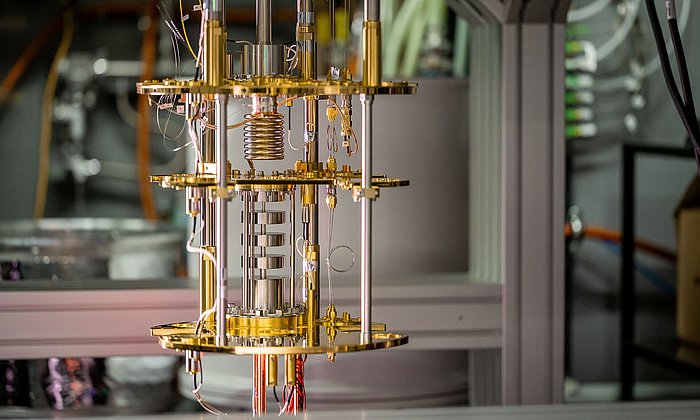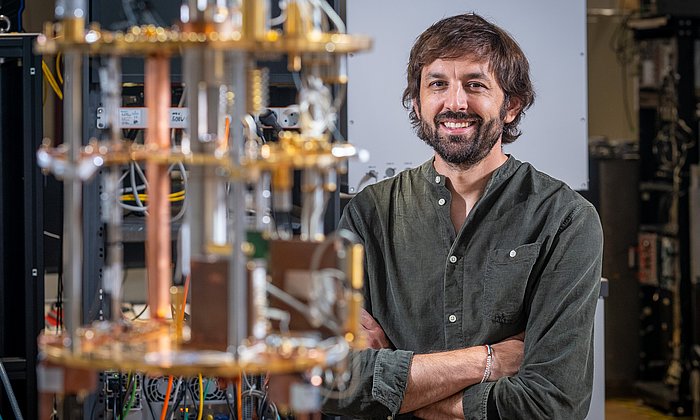Quantum technologies
Quantum technologies will have a profound impact on our everyday lives in the coming decades. With its outstanding research achievements, our university is driving this development forward and promoting a new generation of scientists.
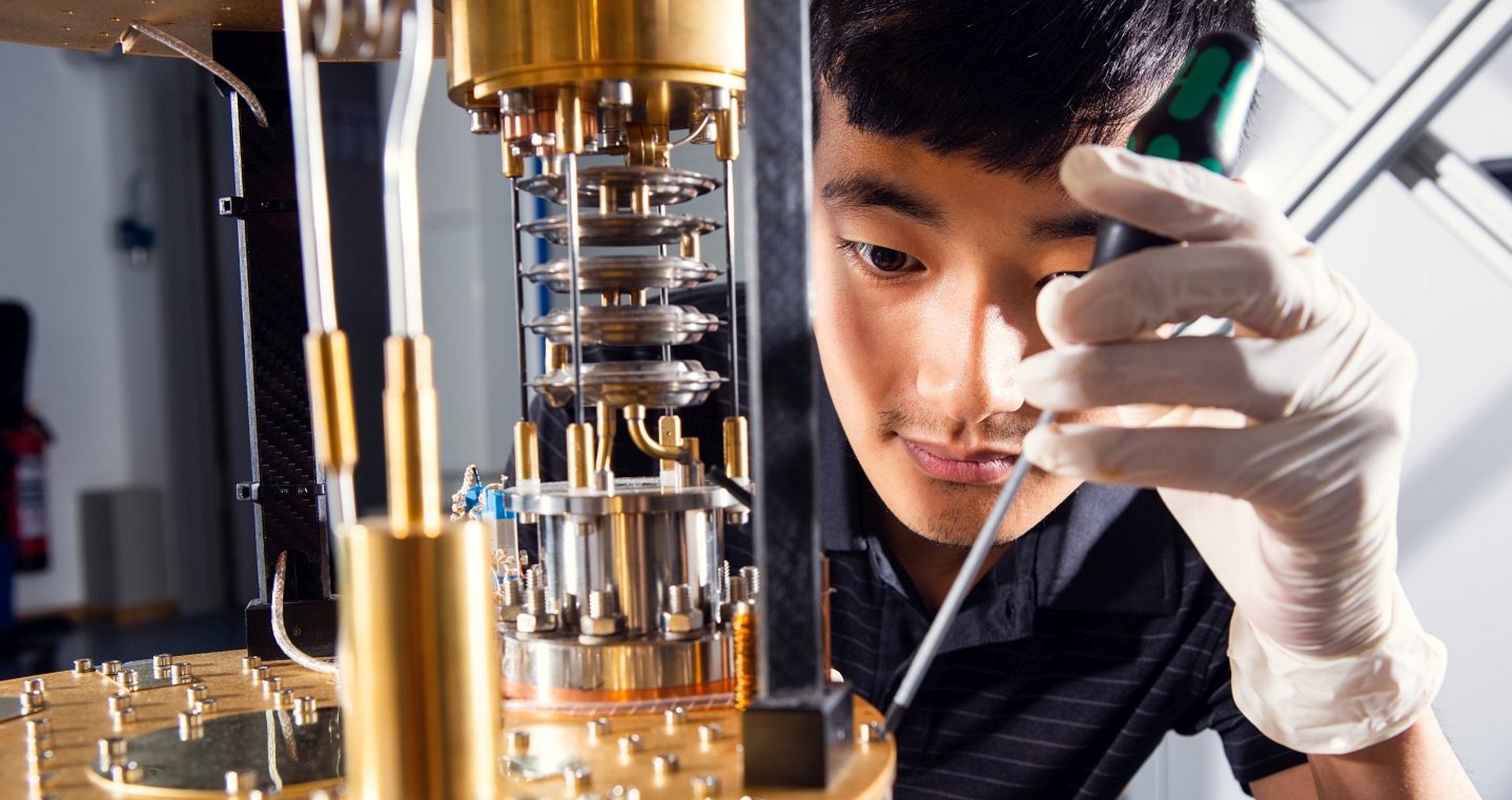
Quanta are the smallest, discrete units of a physical quantity such as energy. Their properties are complex: systems consisting of just a few quanta can contain unimaginably large amounts of information. In addition, quantum systems can exist in superposition states and have a fixed relationship to each other regardless of their distance, which is incompatible with the laws of classical physics. These capabilities are the basis for new, groundbreaking technologies.
The enormous progress in the preparation and control of quantum systems makes it possible to develop fast quantum computers with extremely high computing power or sensitive measuring instruments such as quantum sensors that can detect the smallest magnetic fields or forces. Our university conducts cutting-edge research in these areas, develops the underlying basic technologies and at the same time trains highly qualified young scientists who will be able to accompany this development in the future.
Video portrait of postdoc Viviana Villafane
Quanta and diamonds
Why are young, talented scientists attracted to TUM? Where do they come from and what are their research topics? Get to know the physicist and quantum researcher Viviana Villafane from Argentina. She is a postdoc at TUM and is researching the foundations of quantum internet and quantum computers – with the help of diamonds.
Technical terms from quantum technologies
TUM science glossary
There are many different terms and areas in the quantum world and its underlying theories. In our glossary, we explain some of the most important ones.
News from quantum technologies
Research and innovation
Our researchers create the basis for new fields of application for quantum technologies through the interdisciplinary interaction of natural sciences and engineering. They collaborate with other researchers in numerous research networks and institutions, thus strengthening the Munich ecosystem in these fields. Together and with financial support from the Hightech Agenda Bayern innovation program, new research approaches can be implemented in these key technologies.
Main research areas
Quantum computers are based on the principles of quantum mechanics and use qubits instead of bits. This gives them the potential to solve complex problems much faster than conventional computers. Quantum computing is a central research focus at TUM, ranging from basic research to the development of quantum hardware and software.
We research new algorithms, methods and technologies, and we also implement pioneering projects in application areas such as encryption methods (cryptography), quantum simulation and machine learning - both in cooperation with other research institutions, universities and companies and through internal research initiatives.
We are developing and testing quantum communication networks that enable quantum information to be transmitted securely between remote locations. In the future, such networks could be used for tap-proof communication and quantum technologies such as quantum internet and quantum cloud computing. This also includes research into satellites for quantum communication.
In this area, measuring instruments are being developed at our university that use quantum properties, quantum mechanical states or quantum systems. They are very sensitive because quantum states react easily to external disturbances and they offer good spatial resolution because they are typically very small. They can be based on light, mechanical vibrational quanta or magnetic quanta - so-called spins. Their fields of application lie in materials science, medical diagnostics, particle physics or the investigation of the subsurface in construction projects.
Quantum materials have completely new properties that are the result of quantum fluctuations, quantum entanglement, quantum coherence and the topology of quantum mechanical wave functions. Important examples are topological materials, superconductors and quantum spin liquids.
We investigate whether topological materials could be the basis for a new generation of energy-efficient electronics and whether superconducting materials are suitable for energy generation, storage and transmission. In quantum spin liquids, the spins of the electrons become entangled so that they cannot form a statically ordered state. Here we explore if energetic defects in these quantum-fluctuating materials could be the basis for revolutionary forms of information storage and processing.
Our research contributes to expanding and questioning established theories in the field of quantum science. One research focus is to theoretically understand which relevant tasks can be efficiently solved by a quantum computer. As a concrete demonstration, a TUM research team together with Google Quantum AI has developed new methods to simulate the properties of exotic phases of matter on quantum computers.
Our scientists are also researching possible social, ethical, societal and political challenges that may be associated with advances in quantum technology. These include the disclosure of trade or state secrets, the retooling of companies or accelerated AI development through faster computing power. The aim is to identify opportunities and risks and use established methods to solve any problems that arise and monitor developments. Young scientists are also trained in the responsible use of quantum technologies.
